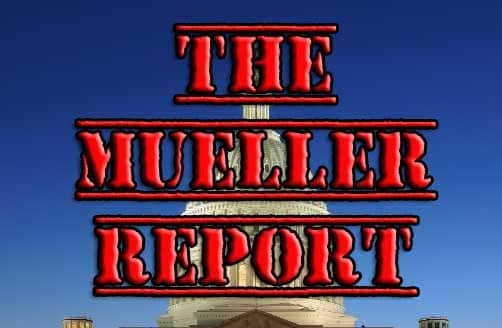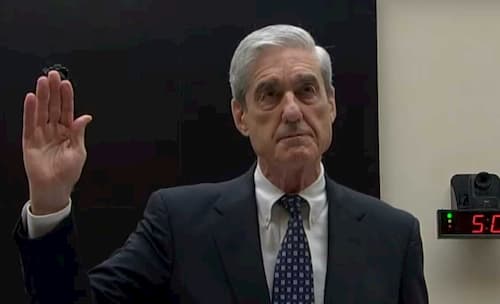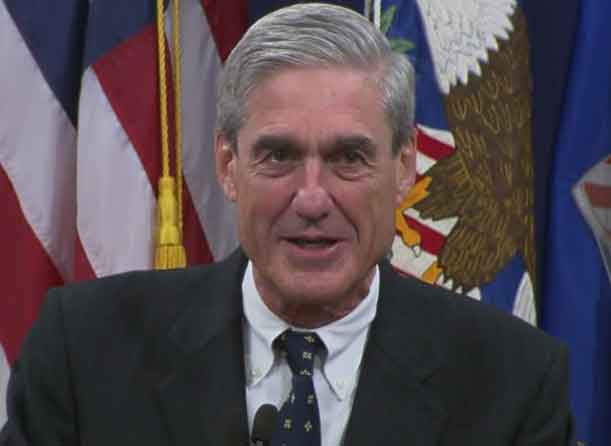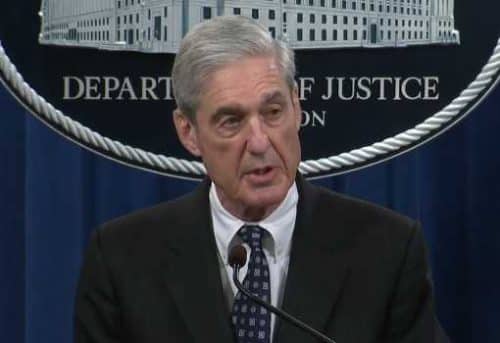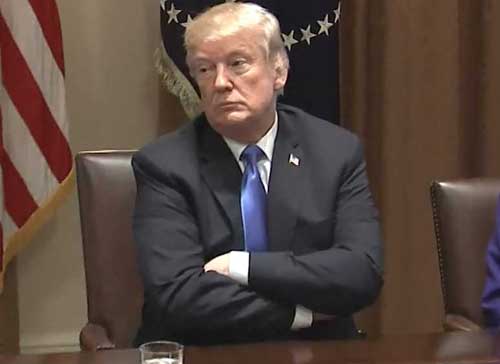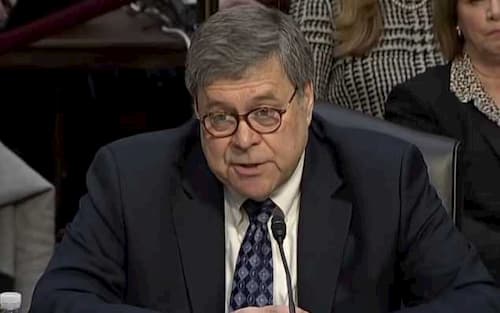WASHINGTON – In March, special counsel Robert Mueller submitted his final report to Attorney General William Barr without answering the most tantalizing question: Did President Donald Trump attempt to obstruct the investigation into whether Russians meddled with the 2016 presidential election in Trump’s favor.
Barr, the savvy veteran Republican lawyer, wasted no time in answering that question for the public: He and his deputy concluded there was no evidence of obstruction. Barr’s tactics triggered widespread criticism from the Democrats. But that maneuver enabled Trump to claim he had been totally exonerated in the investigation.
Now, Barr finds himself in the thick of another controversy engulfing the president: an explosive whistleblower complaint by an intelligence officer that Trump pressured Ukraine to dig up political dirt on front-running Democratic presidential candidate Joe Biden and his son, Hunter Biden.
Barr is mentioned several times in both the nine-page complaint and a rough White House transcript of a July 25 call between Trump and Ukrainian President Volodymyr Zelenskiy.
Pressed Ukraine leader
During that call, Trump repeatedly pressed Zelenskiy to talk to Barr and Trump’s personal attorney, Rudy Giuliani, to “get to the bottom” of the Bidens’ alleged but unproven misdeeds in Ukraine. Trump at the same time emphasized how much the U.S. had done for Ukraine in providing military assistance.
The bombshell allegations prompted House Speaker Nancy Pelosi this week to order a formal impeachment inquiry into Trump’s conduct.
Although the probe is focused on Trump’s July 25 call and White House officials’ subsequent efforts to suppress details of the conversation, Democratic lawmakers are highly critical of Barr’s involvement and the Justice Department’s handling of the complaint on his watch.
“He’s gone rogue,” Pelosi said on the MSNBC “Morning Joe” television program Friday, referring to Barr. “I think where they’re going is a cover-up of a cover-up.”
[content id=”79272″]
Barr’s spokeswoman, Kerri Kupec, did not respond to Pelosi’s comments. But in a statement first released Wednesday, Kupec sought to distance the attorney general from Trump’s demands on Ukraine for cooperation in dredging up damaging information on Biden and his son, who once served on the board of a Ukrainian energy company called Burisma Holdings while Joe Biden was vice president.
During the call, Trump asked Zelenskiy to “meet or speak with two people the President named explicitly as his personal envoys on these matters, Mr. Giuliani and Attorney General Barr, to whom the President referred multiple times,” according to the complaint.
“The president has not asked the attorney general to contact Ukraine on this or any other matter,” Kupec said. “The attorney general has not communicated with Ukraine on this or any other subject. Nor has the attorney general discussed this matter, or anything relating to Ukraine, with Rudy Giuliani.”
While Kupec said Barr was made aware of the whistleblower complaint “several weeks after the [July 25] call took place,” the attorney general, in fact, appears to have been notified shortly after the complaint was filed with the intelligence community’s inspector general August 12. That is when the White House contacted the Justice Department regarding the complaint, a U.S. official said, speaking on background.
‘Urgent concern’
The anonymous intelligence official filed his complaint as an “urgent concern” under a1998 law that provides whistleblowers with protection from retaliation. The law partly defines an urgent concern as “a serious or flagrant problem, abuse or violation of law or Executive Order. …”
Under the law, an urgent matter complaint must be transmitted to Congress within three weeks of its filing, meaning congressional intelligence committees should have received it by September 2.
But in this case, the White House took steps to suppress the complaint and resisted congressional efforts to obtain the document.
Joseph Maguire, the acting director of national intelligence, told lawmakers Thursday that the White House counsel’s office advised him not to release the complaint because much of it was subject to executive privilege.
For its part, the Justice Department had no small role in evaluating the complaint once Maguire turned to the department for a second opinion and a referral for a possible criminal investigation.
The Office of Legal Counsel, which serves as a legal adviser to the executive branch and is led by Trump appointee Steven Engel, ruled that the complaint did not constitute an “urgent concern” and that the Office of the Director of National Intelligence was not required to forward it to Congress.
Next, the Justice Department’s criminal division, headed by another Trump appointee, Brian Benczkowski, determined the complaint offered no evidence of a campaign finance violation and that “no further action was warranted.”
The legal theory being tested was whether a foreign government helping Trump find damaging information about Biden constituted an “illegal contribution.”
Kupec said Justice Department officials relied on procedures in the “Justice Manual” used by federal prosecutors and that their decision was based “on the facts and applicable law.”
“All relevant components of the department agreed with this legal conclusion, and the department has concluded the matter,” she said.
The U.S. official interviewed by VOA on background said Barr was not directly involved in these decisions.
State Department criticized
Adam Schiff, the Democratic chairman of the House Intelligence Committee, nevertheless criticized the department for the “breathtaking speed” with which it decided that “there is nothing to see here.”
Barr took the helm of the Justice Department in February, vowing to protect its integrity and independence. Supporters describe Barr is a no-nonsense lawman.
“I have no reason to doubt the integrity of Bill Barr and I’m glad he is in that position,” said John Malcolm, a former Justice Department official now with the conservative Heritage Foundation.
But critics say in Barr, who holds an expansive view of executive power, Trump has found a fierce loyalist quick to defend him, in contrast to former Attorney General Jeff Sessions, whom he repeatedly disparaged and eventually fired in November 2018.
In April, Barr made headlines when he said during congressional testimony that “spying did occur” on Trump’s 2016 campaign, an uncorroborated claim Trump has advanced as he has sought to undermine the Russia investigation.
Barr said he had launched an internal review of the genesis of the Russia investigation and later appointed U.S. Attorney John Durham to lead the effort.
Then in May, Barr told CBS News that he saw “no evidence” that Trump’s actions have undermined democratic institutions, despite the president’s frequent attacks on the FBI, the Justice Department and federal judiciary.
“From my perspective, the idea of resisting a democratically elected president and basically throwing everything at him and you know, really changing the norms on the grounds that we have to stop this president, that is where the shredding of our norms and our institutions is occurring,” Barr said.
Source: VOA

